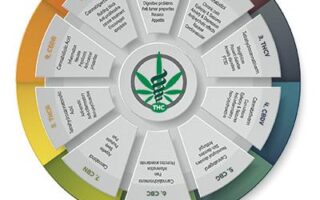In recent years, the conversation surrounding marijuana has undergone a significant transformation, shifting from taboo to topic of scholarly inquiry. As researchers delve deeper into the complexities of the cannabis plant, an unexpected revelation has surfaced: marijuana may hold the key to enhancing memory. While the image of marijuana often conjures thoughts of forgetfulness and foggy recollections, a growing body of evidence suggests that certain compounds within the plant could actually support cognitive function and memory retention. This article embarks on an exploration of the intriguing nexus between cannabis and memory, unraveling the science behind the claims and the implications for both casual users and those seeking therapeutic benefits. Join us as we uncover the layers of this captivating topic, offering a balanced perspective on how marijuana might not be the memory thief it’s often made out to be.
Table of Contents
- Understanding the Neurobiology of Marijuana and Memory Enhancement
- Exploring the Therapeutic Applications of Cannabis for Cognitive Function
- Best Practices for Incorporating Cannabis into Memory Improvement Strategies
- Evaluating the Risks and Benefits of Marijuana Use on Mental Clarity
- Q&A
- In Summary
Understanding the Neurobiology of Marijuana and Memory Enhancement
Recent studies have begun to unravel the complex relationship between cannabis and cognitive functions, particularly in the realm of memory enhancement. The active compounds known as cannabinoids, especially tetrahydrocannabinol (THC) and cannabidiol (CBD), interact with the endocannabinoid system, which plays a vital role in various neural processes. These interactions can promote neurogenesis—the growth of new neurons—primarily in the hippocampus, an area crucial for learning and memory. As a result, some users report a marked improvement in their ability to retain information and recall memories after cannabis consumption.
However, the impact of marijuana on memory is not universally beneficial; it is essential to consider different factors, including dosage, frequency of use, and individual biochemistry. The risks associated with high THC concentrations can lead to temporary cognitive impairment, especially in inexperienced users. To maximize the potential of marijuana as a memory enhancer, consider the following:
- Strain Selection: Opt for strains with balanced THC and CBD levels.
- Dosing: Start with low doses and gradually increase for optimal results.
- Usage Context: Use in distraction-free environments to enhance focus.
| Cannabinoid | Effect on Memory |
|---|---|
| THC | Can enhance recall but may impair working memory at high doses. |
| CBD | Possesses neuroprotective properties, potentially aiding memory retention. |
Exploring the Therapeutic Applications of Cannabis for Cognitive Function
Recent studies have begun to unravel the potential benefits of cannabis in enhancing cognitive function, particularly memory. Cannabinoids, the active compounds found in marijuana, interact with the brain’s endocannabinoid system, which plays a crucial role in regulating mood, memory, and overall cognitive processes. Emerging research suggests that certain strains of cannabis may help improve short-term memory, increase mental clarity, and even boost learning capabilities when used appropriately.
Some of the therapeutic applications of cannabis in cognitive health can be summarized as follows:
- Anxiety Reduction: Cannabis can soothe anxiety, which often hinders cognitive performance and memory recall.
- Neuroprotection: Some cannabinoids exhibit neuroprotective properties that may assist in preserving cognitive function over time.
- Mood Enhancement: By promoting a positive mood, cannabis can indirectly enhance focus and memory consolidation.
| Cannabinoids | Memory Effects |
|---|---|
| THC | Psychoactive effects; can enhance creativity. |
| CBD | Reduces anxiety; may improve focus. |
| CBN | Potentially aids in sleep; enhances memory retention. |
Best Practices for Incorporating Cannabis into Memory Improvement Strategies
Incorporating cannabis into memory enhancement routines can be both effective and beneficial when approached with intentionality and mindfulness. Start by understanding the specific cannabinoids that align with your memory goals. For instance, CBD is known for its neuroprotective properties, while THC may contribute to short-term memory enhancement. Consider keeping a journal to track your experiences, noting the dosage, strain, and any noticeable effects on your cognitive performance. This personalized approach allows for optimization based on individual responses, enabling you to find a balance that works best for you.
Creating a conducive environment is vital for memory improvement. Engage in activities that promote cognitive function alongside cannabis use. This can include:
- Mindfulness Meditation: Incorporating cannabis into meditation can enhance focus and reflection, paving the way for better information retention.
- Brain-Health Diet: Complement your cannabis use with foods rich in omega-3 fatty acids, antioxidants, and vitamins that support brain health.
- Regular Exercise: Physical activity increases blood flow to the brain, which can amplify the positive effects of cannabis on memory.
Be mindful of dosage as too much can lead to impaired memory, while the right amount may facilitate better recall and creative thinking.
Evaluating the Risks and Benefits of Marijuana Use on Mental Clarity
The relationship between marijuana use and cognitive abilities, particularly mental clarity, is complex and multifaceted. On one hand, some studies suggest that specific cannabinoids may enhance certain types of memory and focus, potentially offering benefits such as:
- Improved Creativity: Users often report heightened creative thinking during and after marijuana use.
- Relaxation of Mental Barriers: The substance may alleviate anxiety, leading to better problem-solving.
- Enhanced Short-Term Memory: In some cases, specific strains appear to boost recall abilities temporarily.
However, these potential benefits must be weighed against certain risks that marijuana poses to cognitive function. Chronic use can lead to diminished mental clarity and issues such as:
- Impaired Short-Term Memory: Regular marijuana users might experience challenges in retaining newly acquired information.
- Cognitive Decline: Long-term users, especially those who begin during youth, may face issues with memory and concentration over time.
- Altered Judgment: Marijuana can impair decision-making capabilities, which could impact day-to-day functioning.
Q&A
Q&A: Exploring the Connection Between Marijuana and Memory Enhancement
Q1: Can marijuana really improve memory?
A1: The relationship between marijuana and memory is complex and often misunderstood. While some studies suggest that certain compounds in marijuana, like CBD, may have neuroprotective properties that could support cognitive function, other research indicates that THC, the psychoactive component, may impair memory in the short term. So, the claim that marijuana improves memory isn’t universally accepted; it largely depends on the type and amount of cannabis consumed.
Q2: What specific aspects of memory could marijuana affect?
A2: Marijuana can influence various types of memory, including short-term and long-term recall. Some users report an enhancement in creative thinking and associative memory when using marijuana. Conversely, it can also hinder working memory and the ability to focus on tasks. The effects often vary from person to person, making it a nuanced topic.
Q3: Are there particular strains of marijuana that are more beneficial for memory?
A3: Different strains contain varying concentrations of cannabinoids and terpenes, which can affect their overall impact. Sativa strains, often associated with a more uplifting, cerebral high, may promote creativity and associative thinking, potentially aiding memory. Indica strains, being more relaxing, may not provide the same cognitive benefits. Users may need to experiment to find the strain that works best for their individual needs.
Q4: Is there scientific evidence supporting the idea that marijuana enhances memory?
A4: Research on the effects of marijuana on memory is ongoing. Some studies suggest that specific components like CBD may enhance neurogenesis, the process of forming new neurons, which could theoretically improve certain memory functions over time. However, most evidence indicates that THC can impair immediate recall and memory formation. More rigorous long-term studies are needed to fully understand these dynamics.
Q5: How do factors like dosage and method of consumption play a role?
A5: Dosage and method of consumption are crucial in determining how marijuana affects memory. Lower doses of THC might enhance mood and creativity, potentially aiding memory, while higher doses can lead to cognitive impairment. Additionally, methods like vaping or consuming edibles can result in different onset and intensity of effects, influencing how memory is impacted.
Q6: Who might benefit from marijuana’s potential memory-enhancing effects?
A6: Individuals seeking relief from anxiety or stress-related memory issues might find certain cannabis strains helpful. Additionally, those with neurodegenerative conditions, such as Alzheimer’s, are being explored in research for potential benefits related to specific cannabinoids. However, it’s essential to approach this link cautiously and consult healthcare professionals.
Q7: Are there any risks associated with using marijuana for memory enhancement?
A7: Yes, there are risks. While many experience positive effects, others may encounter short-term memory loss, confusion, or decreased attention—all of which can hinder memory performance. Regular use can also lead to dependency or develop adverse mental health effects in some. Thus, understanding personal limits and seeking professional advice is crucial.
Q8: What is the takeaway for those curious about using marijuana to improve memory?
A8: The relationship between marijuana and memory is individualistic and multi-faceted. It’s essential to consider personal experiences, the specific effects of different strains, and consult with knowledgeable sources before making any decisions. While some users may find cognitive benefits associated with marijuana, the potential for memory impairment suggests a balanced approach is vital.
In Summary
As we draw the curtains on our exploration of the intriguing relationship between marijuana and memory enhancement, it’s clear that the conversation is as complex as the plant itself. While emerging studies hint at potential cognitive benefits, it’s essential to navigate these findings with a discerning eye. The interplay of cannabinoids with our neurological pathways may offer insights into memory modulation, but the nuances are multifaceted and still unfolding.
As researchers and enthusiasts continue to dissect the potential of marijuana, one thing remains certain: the quest for knowledge in this arena is ongoing. Whether as a tool for cognitive enhancement or merely a point of curiosity, marijuana stands at the intersection of science, culture, and personal experience. As we ponder the implications of these insights, we invite you to remain curious, stay informed, and consider the broader context of how we understand memory itself. After all, in the ever-evolving landscape of cannabis research, every new finding is a step closer to unraveling the mysteries of the mind.


